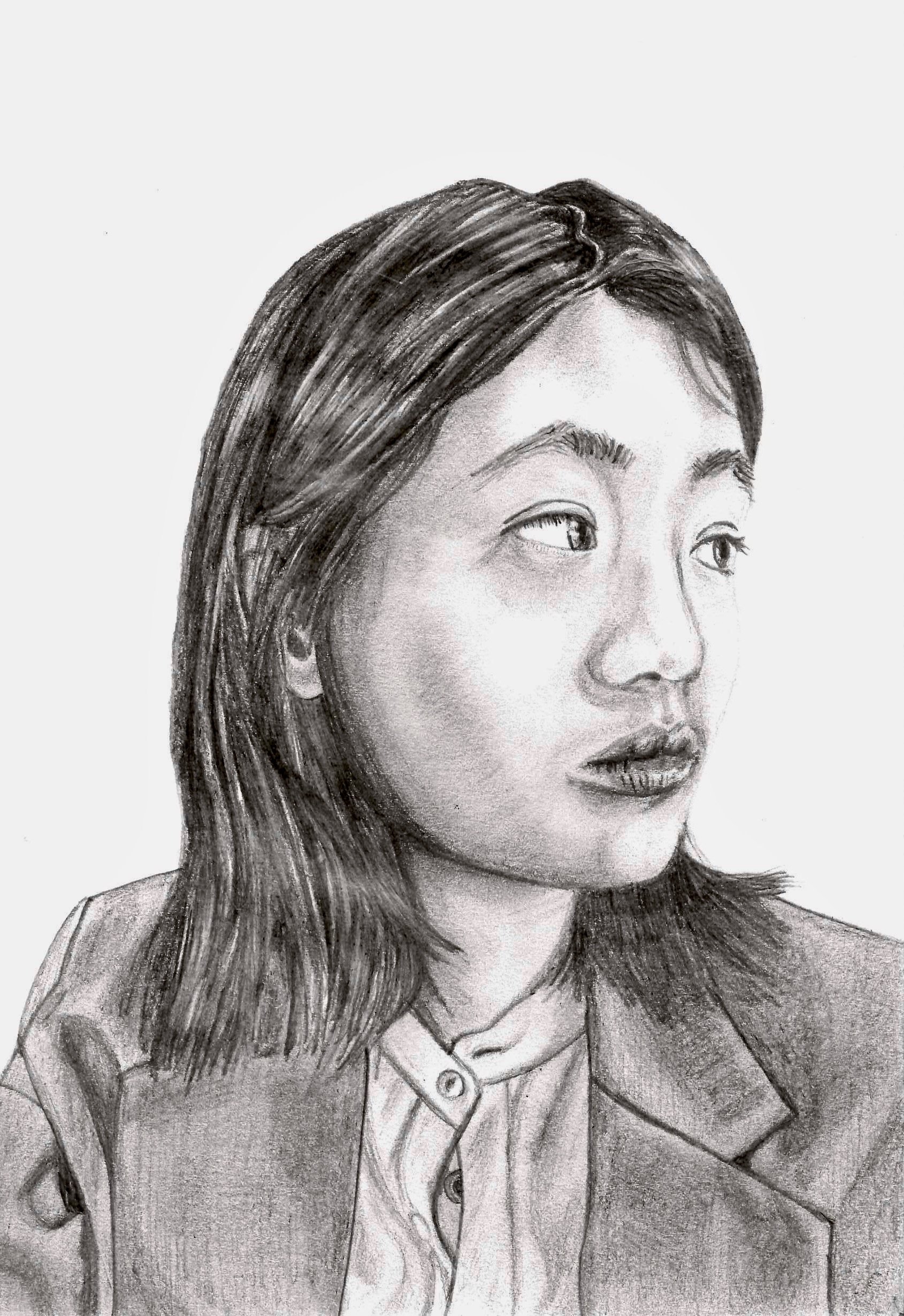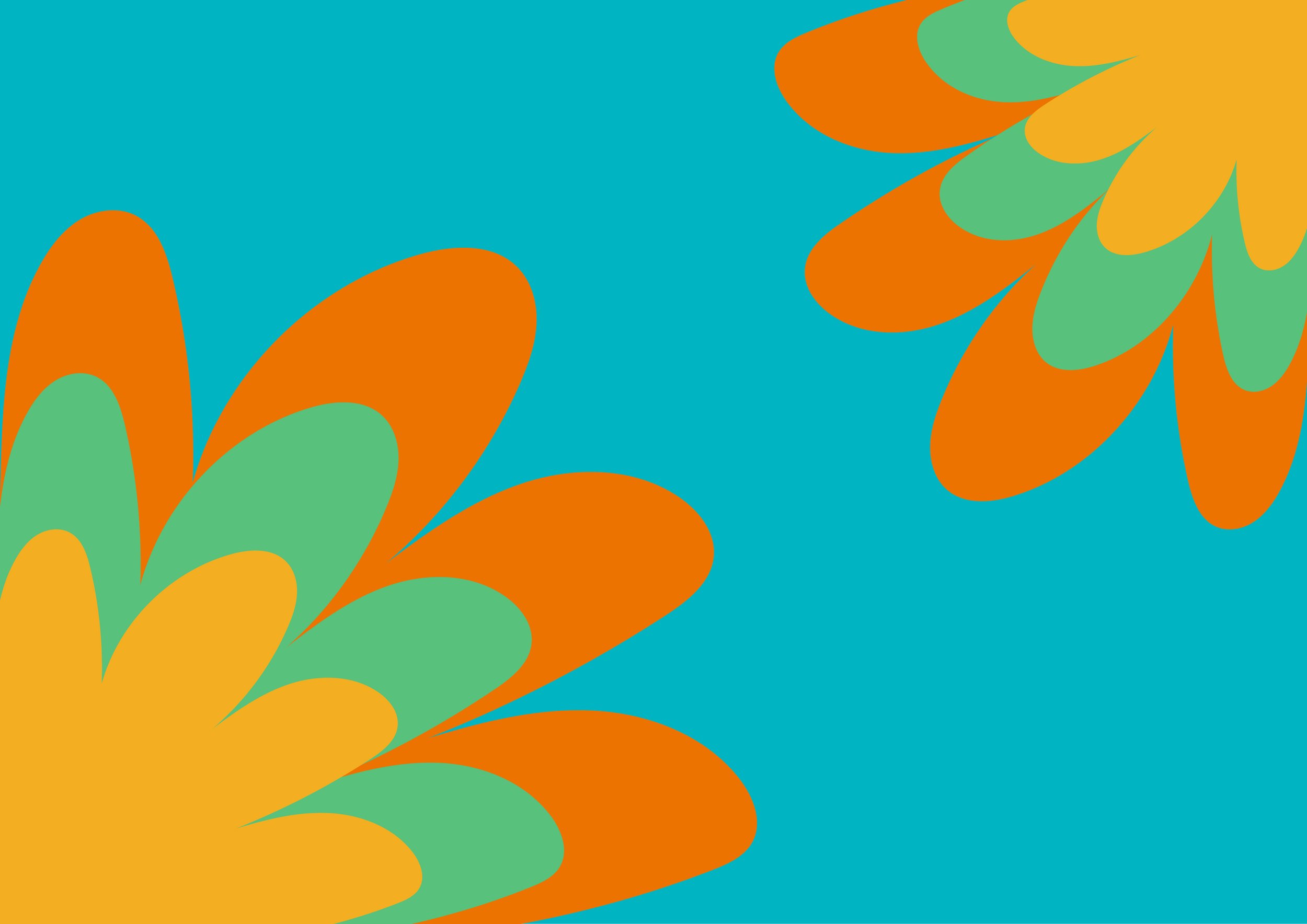“Sometimes the Sun” and Other Poems
The Mix: Rebirth
-
Feature
-
The Mix: Rebirth - Feature -
Self-portrait of Minying Huang
Sometimes the Sun
After Lucille Clifton
Sometimes the sun will drip its bright liquid
down. Like runway lights, the half-drunk beers, clear
plastic cups lining the exit path. Having
caught the sun slipping, their bellies gleam gold as
compasses—flashes in time. Out the park without
a name, turning onto Piccadilly, brown box,
transformer? What do I know of electricity,
except that we are it, and trans, on the street, with our
laughter as cover, uncertain safety in numbers. If
the park has no name, it is because I do not know it.
How wrong that sounds—to make small the world after my own smallness.
Today, the day is wet. Our umbrellas raise their heads, tip their
tops to the sky, and I am smiling in London, easing into
my limbs, springing from foot to tired foot. Dancing for the camera
and ourselves, we were once strangers, now play-boxing in another park
with another name, now singing hungry in the rain. Look how far-flung
without footed feeling, where for flashes in time I left my heartbreak on
the deck chairs of memory, can you believe it, as if it were a tourist
of the self, as if I never met her and so she never left—not that I
want to bury myself in forgetting, just—would love the memory to hurt less.
One day it will. And I will do it again, and again, and again, crack myself
open like a beer, or an egg, on the edge of the road, the world unseen, until
it too becomes a loved and rested part of me and easier than breathing, which is
not always easy, to be fair. Sometimes I want to away the body of its breath,
the breath of its body. Sometimes I do not see the runway lights in abandoned beer cups
and wet days are just wet. But there are other parks and other names, so many people to
love and be loved by; yes, even on a wet day like today the sun has been dripping its bright
liquid down, our cups to the sky. Most days I feel I have no direction. But the world unseen
is vast, and so are we. Whichever way we go, I am running into tomorrow, love, here, us—
smiling in London, transformer on the street, I know something of electricity, after all.
棱角 [léng jiǎo]
In its glare, I imagine taking a
chisel to the quarter moon, the spitting
image. All the softness of reaping hook,
face wet as boy serenading the floor
in sepia, kissed closer to shame than
shaving cream, the callow, thumbed jaw—where the
sickle grazes but never travels north
into loss, though I am desirous of
it—raw where it grazes, reminding me
of the shape of myself. Above the blade,
breath comes hard. I am ripe and afraid. ‘All
the falseness of sculpture.’ All the truth of
what we want. I would never dare take a
chisel to the moon. I am not the moon.
N.B. Written in response to a prompt from the editor, writer, and art historian Jiaqi Kang, ‘棱角 [léng jiǎo]’ was inspired by the music video for Jay Chou’s ‘反方向的鐘'’ [Counter-clockwise Clock]’ (2000) and recollections of a long childhood obsession with other music videos of his. In Chinese, the noun ‘棱角’ has to do with angularity, sharpness and edges.
However Many Tomorrows Away,
or a Kindness of Shears Buries a Conflict of Breath
I
Silvered blades carry teeth, set chattering
into shade—turns of sky and phrase either
side of the window, dusking graph paper
tiles, kitchen stool, makeshift shawl. The evening
eased open, like a notebook; the room lined
pencil expectation, then ink like I
trust in these hands, though I never did pride
in their patience until this moment, kind
of like how I learned to love language too
late. I thought her hands spelled the end of the
world in my hair. I thought I didn’t want to
‘look like a boy’. Tonight, I wish for the
shape of my desire to fall in love with
the bravery of bare shoulders, the air
around your nape one tomorrow, outside
the playground; to love that child who lets their
own laughter come last, die first—
break form.
II
I have only
the lightness of
collarbone and shoulder
blade breath—the lift of
the spine, grace
of the head—as oath,
and it is
enough.
N.B. Selected as runner-up in the New Beginnings Poetry Competition 2022, “However Many Tomorrows Away, or a Kindness of Shears Buries a Conflict of Breath” was first published on the Curtis Brown Creative blog on 3 February, 2022.



